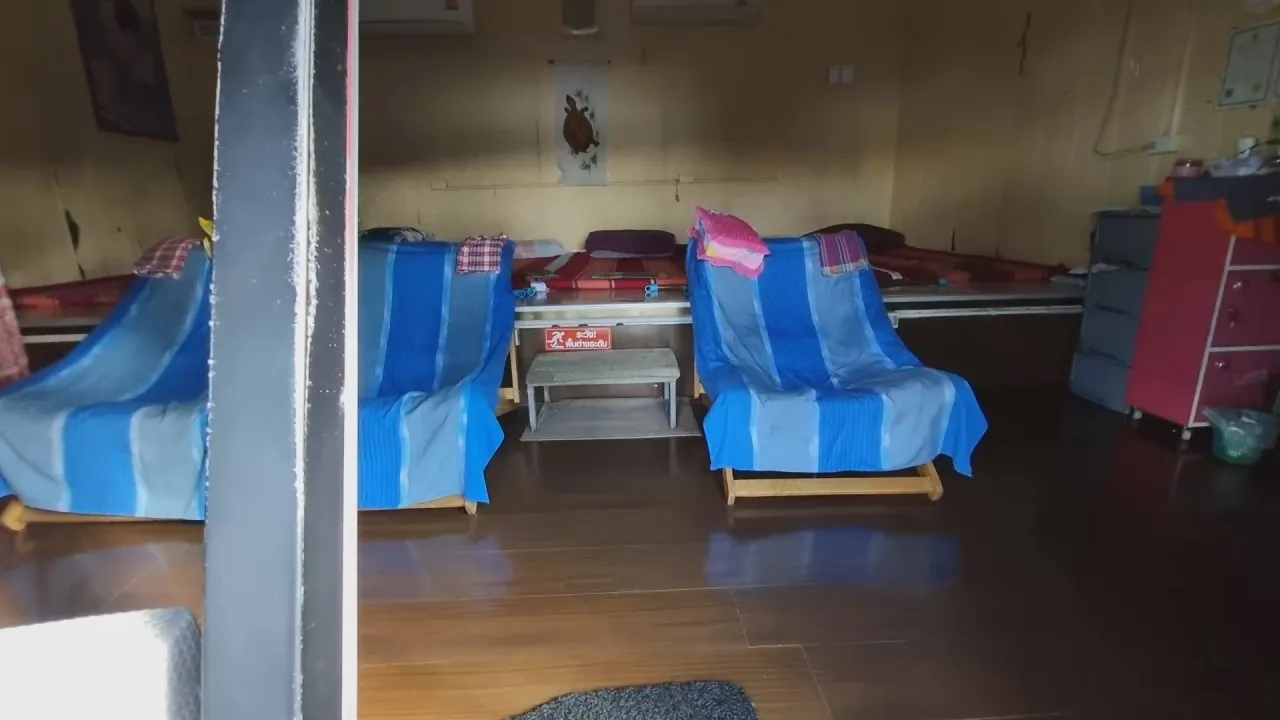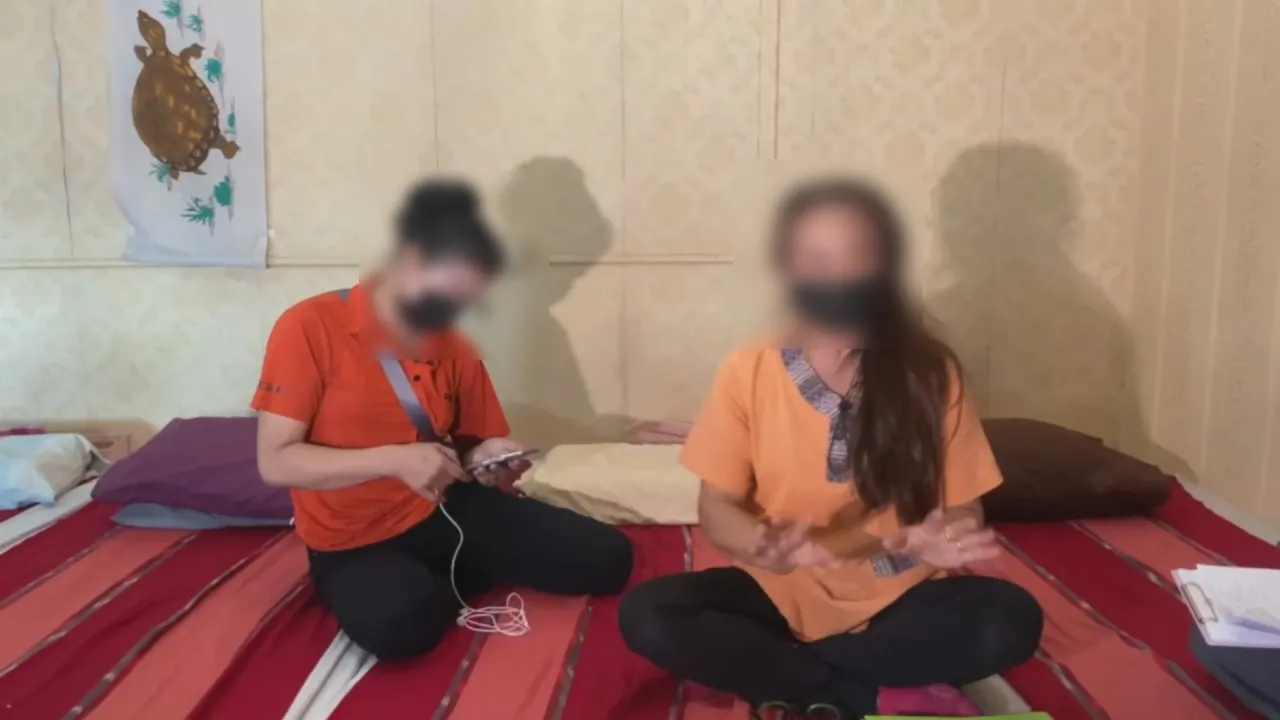Thai masseuse pleads for justice amid singer’s tragic death

The seasoned Thai masseuse entangled in a whirlpool of controversy following the untimely death of luk thung singer Chayada “Phing” Praohom in the heart of Udon Thani, appealed for justice.
The 20 year old Thai singer tragically succumbed two months after a controversial neck-twisting procedure. While an autopsy has cleared the massage of blame, questions and suspicions still linger.
Chayada, affectionately known to her fans as “Phing Chayada,” was just 20 when she first sought relief for her stiff neck in early October, reportedly visiting the parlour three times.
The masseuse, known only as Aoy, who has been practising for years with a legitimate licence, was staggered to learn of Chayada’s death and her link to it.
“I was so shocked when I heard that I was that masseuse. I am asking for fairness and am ready to prove the truth.”
The massage parlour boasts seven certified therapists, each having diligently completed the necessary 150-hour training. According to Dr Somchaichot Piyawatwela from Udon Thani’s public health office, the young singer succumbed to sepsis and a fungal infection, with no direct connection between the massage and her tragic end.
Backing this, Public Health Minister Somsak Thepsutin pointed to MRI results negating any cervical issues.
“Modern medical technology shows no link between the massage and her condition.”
Media reports chart a harrowing timeline for Chayada, starting with neck pains after her October 5 visit to the massage parlour, and culminating in severe weakness and her admission to the ICU by November 22. Her battle ended on December 8, when she was overtaken by septic shock.
Minister Somsak insists on maintaining credibility in Thai traditional medicine and massage through rigorous quality control. Meanwhile, a family insider reveals that Chayada’s mother still harbours doubts about the neck manipulation’s role but has chosen not to pursue another autopsy.
As this story unfolds, the quest for truth and justice continues, underlining the importance of transparency and fairness for all involved.
Chayada’s cremation is scheduled for tomorrow, December 12.
Original story: Thai singer dies from neck injury allegedly linked to massage in Udon Thani
A Thai female singer died yesterday morning from complications caused by a herniated cervical disc, allegedly linked to a massage at a shop in the Isaan province of Udon Thani.
The singer, Chayada “Phing” Praohom, who was associated with Guitar Record, became bedridden and received intensive care at Udon Thani Hospital before her death, yesterday, December 8. Since mid-October, she has been updating her fans about her condition through her Facebook account.
The 20 year old singer revealed that she initially sought a massage at a shop in Udon Thani to relieve shoulder pain. However, her condition worsened, eventually requiring hospitalisation. In one of her posts, she expressed her regret.
“I felt pain, so I just wanted a massage, but I never expected it to be this dangerous. I lost my money to the massage and my health.”
Phing explained that she first felt pain in the back of her neck two days after her initial massage but dismissed it as a normal after-effect. She later returned to the same shop for a second massage with the same masseuse.
Two weeks after the second session, her pain intensified, and she struggled to lie on her back or face. Assuming it was still a normal reaction, she went for a third massage, this time with a different masseuse.
She reported that the new masseuse applied excessive pressure, leaving her shoulder bruised for weeks. Subsequently, she experienced numbness in her fingertips, fever-like symptoms, and pain radiating from her shoulder to her legs. Her left side began to lose sensation.

Masseuse remains unidentified
Phing eventually lost control over the left side of her body, regaining only partial control overall. Despite her deteriorating condition, she remained hopeful of recovery. Tragically, her health continued to decline, and she succumbed to her condition.

In her posts, Phing emphasised that both masseuses at the shop twisted or flicked her neck, which she believed caused her severe symptoms.
The Udon Thani Provincial Public Health Office has since inspected the massage shop, located near a public park in the province. Of the seven masseuses employed there, two were found to hold valid licenses, while the remaining five are under investigation.

The shop’s manager, whose identity was not disclosed, told Channel 7 that the business has been operating since 2005. She stated that most of the masseuses were part-time workers but claimed the shop verified their licences before hiring. However, she was unable to confirm which masseuse treated Phing.
The manager added that licensed masseuses are trained to avoid twisting, flicking, or bending clients’ necks, though some customers specifically request such techniques. She expressed shock over the incident, stating that she always advises clients to seek medical attention if their symptoms worsen, as massages can only provide limited relief.
Police are currently investigating whether the massage shop or its staff can be held responsible for Phing’s death.

- Pattaya Mail reports Udon Thani health officials confirmed singer Ping Chayada’s death resulted from a blood infection, not linked to a controversial neck massage, highlighting risks of improper massage techniques. (read more)
- South China Morning Post highlights the tragic death of singer Chayada Prao-hom, linking her illness to intense massages, prompting medical warnings about the serious risks associated with such treatments in Thailand. (read more)
Frequently Asked Questions
Here are some common questions asked about this news
Why might the public perceive a link between traditional Thai massage and health risks?
The perception could stem from rare incidents or media reports, despite scientific evidence showing no direct correlation in specific cases.
How does modern medical technology impact the investigation of health incidents linked to traditional practices?
Technologies like MRI scans provide detailed insights, helping to confirm or rule out potential causes linked to traditional practices.
What if increased scrutiny on traditional Thai massage affects its reputation and practice?
It could lead to stricter regulations and training, potentially boosting safety but also impacting practitioners’ livelihoods.
How can public confidence in Thai traditional medicine be maintained amid controversies?
Through stringent quality control, transparent investigations, and public education on the safety and benefits of traditional practices.
Why might families hesitate to pursue further investigations in health-related incidents?
Emotional distress, financial considerations, or trust in initial findings can deter families from seeking additional investigations.
Latest Thailand News
Follow The Thaiger on Google News:


























